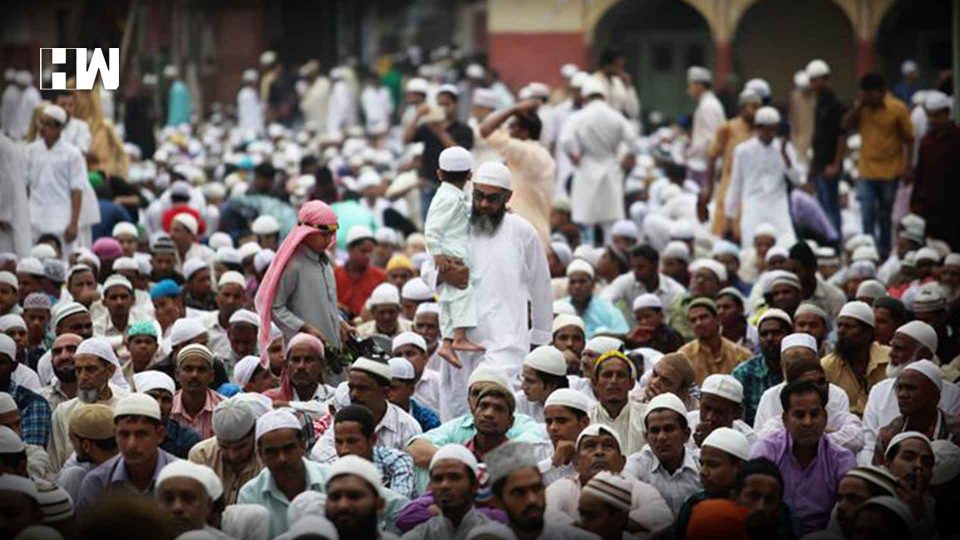In a landmark judgment in 2014, the Supreme Court ruled that Sharia Courts have no legal sanctity and held the fatwas issued by them as void.
In yet another decision courting controversy the All India Muslim Personal Law Board which is considered the Highest Decision making body on Muslim affairs has iterated that it will set up more Sharia courts across the country. The AIMPLB aims to spread the network of these Darul Qaza to the district level.
Zafaryab Zilani, senior member AIMPLB said, “The objective of Darul-Qaza is to resolve matters in light of Shariat laws instead of going to other courts.” The board is also of the view that the Sharia courts will encourage people to approach them for disputes arising out of the family, including Nikah, Talaq and property matters.
The decision has come at a time when the central government is pushing to make Triple Talaq a punishable offense. While the bill couldn’t be passed during Budget session, the government will try to ratify the bill in the Monsoon Session of the parliament which will start from July 18.
However, the decision to open more Sharia courts has opened up a fresh chapter in the debate around the issue of “Parallel court”. As per definition, Sharia courts are courts that function in accordance with the Sharia Law. In most of the Muslim Majority countries, the legal structure is based upon the Sharia law. While some Islamic scholars advocate the incorporation of Sharia law in today’s world up to a limited extent, certain religious extremist demand an entirely Sharia governed law system for the Muslim community.

Sharia courts controversy in India:
While setting up Sharia Court in India is nothing new, the practices followed by it certainly are questionable. One of the cases that proved vital in the landmark 2014 Supreme Court judgment that said Sharia courts have no legal sanctity.
The incident in question took place in 2005 when in a village of Western UP a 28-year-old Muslim woman (Imrana) was raped by her father-in-law. Soon after she was raped, a local Muslim panchayat (council of elders) asked her to treat her husband Nur Ilahi as her son and declared their marriage null and void. Imrana defied the panchayat’s ruling and continued living with her husband. The leading Islamic seminary Darul Uloom Deoband also issued a fatwa quoting verses from Islam’s holy book Quran. The All India Muslim Personal Law Board also endorsed the atrocious fatwa.
According to some reports, the couple never sought the opinion of any cleric and it was a local journalist that approached the seminary with the case citing it to be a hypothetical one. It was only after the case was highlighted by the National media, the National Commission for Women directed authorities in Muzaffarnagar to take action. While the case itself shocked the country, a Delhi-based lawyer Advocate Vishwa Lochan Madan filed a PIL in which he alleged that Muslim clerics have set up Sharia courts all over the country are rendering judgments like courts and are, thus, running a ‘Parallel courts’ in the country.
Rendering judgment on this PIL, a Bench of Justices C.K. Prasad and Pinaki Chandra Ghose said the fatwa had no legal sanction and cannot be enforced by “any legal process, either by the Darul Qaza issuing it or the person concerned or for that matter anybody.” The judgment, therefore, termed the judgment given out by Darul Qaza void.

Opposition to Sharia Courts:
Those opposing the Sharia Court cite absurd and atrocious laws imposed by the Sharia that are not suited in present-day democratic countries. For example, witnesses, in a sharia court system, must be Muslim. Male Muslim witnesses are deemed more reliable than female Muslim witnesses, and non-Muslim witnesses considered unreliable and receive no priority in a sharia court. In civil cases in some countries, a Muslim woman witness is considered half the worth and reliability than a Muslim man witness. On the other hand, in criminal cases, women witnesses are unacceptable. The thousands of year old Sharia law is regressive and not relevant in today’s world.
There are no doubts that the Sharia law is patriarchal and only encourages general behavior that puts women below the men. In a democratic system like India where Right to Equality (in all respect including while seeking justice) is considered fundamental to human existence, letting Sharia laws prevail is against the very constitution. Even though the constitution allows every individual to practice the religion of their choice, when there is a conflict between religion and constitutional rights, it is the constitution that should prevail.
As an independent media platform, we do not take advertisements from governments and corporate houses. It is you, our readers, who have supported us on our journey to do honest and unbiased journalism. Please contribute, so that we can continue to do the same in future.

